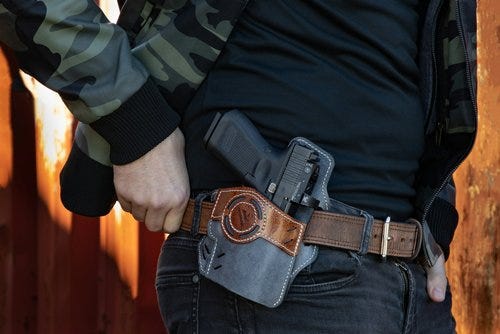Key Aspects of Self Defense Laws in Utah and Their Legal Implications
Introduction
When it comes to understanding the legal landscape surrounding self-defense, it’s crucial to grasp how the law operates in your specific jurisdiction. In Utah, the nuances of self defense laws in Utah can have significant implications for anyone involved in a legal dispute involving physical altercations. This blog explores the key aspects of self defense laws in Utah and how they impact individuals facing charges such as simple assault Utah or Utah sex offenses. We will also discuss the role of a criminal defense attorney Utah County and a criminal lawyer Utah in these cases.

Understanding Self Defense Laws in Utah
Self defense laws in Utah allow individuals to protect themselves from harm under certain circumstances. The primary principle behind these laws is that a person has the right to use reasonable force to defend themselves from an imminent threat of harm. However, the application of these laws can be complex, and understanding the criteria for self-defense can be critical in legal situations.
- Reasonable Force: In Utah, the use of force in self-defense must be reasonable. This means that the force used must be proportionate to the threat faced. For example, if someone is attacked with a fist, responding with a deadly weapon might not be deemed reasonable.
- Imminent Threat: To claim self-defense, the threat must be imminent. This means that the danger must be immediate and not something that might happen in the future. The threat of harm needs to be real and present at the moment.
- Duty to Retreat: Utah does not have a duty to retreat law, meaning that individuals are not required to retreat before using force in self-defense. If you are in a place where you have a right to be, you can defend yourself without the obligation to retreat.
- Castle Doctrine: Utah has a form of the Castle Doctrine, which allows individuals to use force, including deadly force, to defend themselves in their homes or on their property. The Castle Doctrine supports the notion that a person does not need to retreat from their home when faced with a threat.
Implications for Simple Assault and Other Charges
Understanding self defense laws in Utah is particularly important if you are facing charges related to physical altercations, such as simple assault Utah. Simple assault involves causing physical harm or threatening to cause harm to another person. If you are charged with simple assault Utah, proving that your actions were in self-defense can be a viable legal strategy. For instance, if you are accused of simple assault but can demonstrate that you were acting in self-defense according to self defense laws in Utah, this could potentially lead to a dismissal of charges or a favorable outcome in your case. A thorough understanding of these laws is essential to build a strong defense.
Handling Utah Sex Offenses with Self Defense Considerations
When dealing with more complex charges such as Utah sex offenses, the application of self defense laws in Utah may not always be straightforward. Utah sex offenses typically involve allegations of sexual misconduct, and self-defense claims are less commonly associated with these types of charges.

However, there could be scenarios where a claim of self-defense might intersect with sexual offense cases, particularly if the alleged offense occurred in the context of a physical altercation where self-defense was involved. In such cases, it is crucial to work with a knowledgeable criminal defense attorney Utah County or criminal lawyer Utah to navigate the complexities of the legal system.
The Role of a Criminal Defense Attorney Utah County
If you find yourself involved in a case where self defense laws in Utah are relevant, the role of a criminal defense attorney Utah County becomes pivotal. An experienced criminal defense attorney can help you understand how these laws apply to your specific situation and develop a defense strategy tailored to your case.
A criminal defense attorney Utah County will work to gather evidence, interview witnesses, and build a case that supports your claim of self-defense. Their expertise is invaluable in presenting a strong defense and ensuring that your rights are protected throughout the legal process. Here’s how a skilled attorney will assist in building a strong defense:
Gathering Evidence:
- Collecting Physical Evidence: The attorney will work to collect and preserve physical evidence related to your case. This could include photographs of injuries, surveillance footage, or any items relevant to the incident.
- Obtaining Expert Opinions: They may seek expert opinions or forensic analysis to support your claim of self-defense, such as medical reports detailing injuries or the results of any forensic tests.
Interviewing Witnesses:
- Identifying Key Witnesses: The attorney will identify and interview witnesses who can provide testimony supporting your self-defense claim. This includes anyone who might have seen the incident or has relevant information about the circumstances.
- Gathering Statements: They will gather statements from these witnesses to use as evidence in court. This helps in establishing the context of the incident and corroborating your version of events.
The Importance of a Criminal Lawyer Utah
Similarly, a criminal lawyer Utah plays a crucial role in representing individuals facing various criminal charges, including those involving self-defense. A criminal lawyer Utah will provide legal counsel, negotiate with prosecutors, and advocate on your behalf in court. When dealing with cases involving self defense laws in Utah, a criminal lawyer Utah will ensure that all aspects of the defense are thoroughly examined. They will help you understand the legal standards for self-defense, advise you on the best course of action, and work to achieve a favorable outcome.

Conclusion
Navigating the complexities of self defense laws in Utah can be challenging, especially when faced with criminal charges such as simple assault Utah or Utah sex offenses. Understanding the key aspects of these laws and how they apply to your situation is essential for building a strong defense.
Working with a skilled criminal defense attorney Utah County or a knowledgeable criminal lawyer Utah can significantly impact the outcome of your case. Their expertise in handling self-defense claims and their understanding of the legal landscape will provide you with the support needed to effectively address your charges and protect your rights.
FAQs
1. What are the key principles of self-defense laws in Utah?
The self defense laws in Utah permit individuals to use reasonable force to protect themselves from imminent harm. The main principles include the requirement that the force used must be proportional to the threat faced, meaning it should not exceed what is necessary to defend oneself. The threat must be immediate and present, not something anticipated in the future. Additionally, Utah does not impose a duty to retreat, allowing individuals to defend themselves without having to back away from the threat. The Castle Doctrine is also applicable, allowing people to use force, including deadly force, in their homes or on their property without the obligation to retreat.
2. How does reasonable force apply to self-defense cases in Utah?
In Utah, reasonable force is defined as the level of force that is proportional to the threat faced. This means that if someone is threatened with non-lethal force, such as a punch, responding with lethal force, such as a weapon, might not be considered reasonable. The application of reasonable force ensures that the response is appropriate to the level of threat posed.
3. What is the Castle Doctrine and how does it affect self-defense cases in Utah?
The Castle Doctrine in Utah allows individuals to use force, including deadly force, to protect themselves within their home or on their property. This doctrine supports the idea that a person does not need to retreat when confronted with a threat in their own residence or property. It provides legal protection for individuals defending their homes from intruders without requiring them to flee or retreat.
4. How can self-defense laws in Utah impact a charge of simple assault?
If you are facing charges for simple assault Utah, demonstrating that your actions were in accordance with self defense laws in Utah can potentially lead to a favorable outcome. Simple assault involves causing physical harm or threatening harm to another person. If you can prove that your actions were justified as self-defense, it may result in the dismissal of charges or a reduction in severity, as long as the self-defense claim meets the legal criteria of reasonable force and imminent threat.
5. Can self-defense claims be used in cases involving Utah sex offenses?
While self-defense laws in Utah are less commonly associated with Utah sex offenses, there could be scenarios where self-defense intersects with such charges. If a sexual offense occurred within the context of a physical altercation where self-defense was necessary, it may be relevant to examine how self-defense played a role. In these cases, it is crucial to work with a knowledgeable criminal defense attorney to navigate the complexities involved.
Comments
Post a Comment